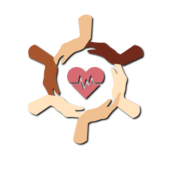If you’re a nurse who feels burned out, underappreciated, or simply ready for a new chapter beyond bedside, you’re not alone. The long shifts, physical demands, and emotional toll of traditional nursing roles have pushed many of us to reevaluate what we truly want from our careers.
The good news? There’s a growing field that needs your clinical skills, critical thinking, and patient advocacy: clinical research nursing.
What Is a Clinical Research Nurse?
Licensed nurses are an essential part of the clinical research field. They support participants (aka your new “patients”! ) who are involved in clinical trials that are focused on testing new drugs, treatments, and medical devices before they’re widely available and approved for the general public.
Clinical research nurses monitor the safety of participants, manage study protocols, collect trial data, and often serve as the bridge between participants and research teams.
In short: you’re still using your nursing brain, but in a whole new way.
Why Nurses Make Great Clinical Researchers
Your bedside experience gives you a huge advantage in clinical research. You’re already skilled in patient care, medication safety, documentation, and interdisciplinary communication—all things that translate directly into the role of a clinical research nurse. Plus, your empathy and real-world experience help humanize the research process for participants who may be nervous or unfamiliar with clinical studies.
Signs It Might Be Time for a Change
- You’re emotionally or physically drained from bedside work
- You crave more regular hours and a better work-life balance
- You’re interested in science, innovation, or public health
- You enjoy detail-oriented tasks and protocol-driven work
- You want to make a broader impact on healthcare
- You want a role that promotes growth both professionally and financially
If that sounds like you, it might be time to explore clinical research nursing.
What a Day as a Clinical Research Nurse Looks Like
Depending on your setting (hospital, academic center, private clinic, or pharma company), your day could involve:
- Coordinating and conducting study visits
- Educating participants about the trial and informed consent
- Monitoring for adverse events or changing symptoms
- Collecting and entering study data
- Communicating with sponsors or regulatory bodies
And unlike bedside, you’re typically working Monday to Friday—Goodbye 12 hour shifts!
Pros Compared to Bedside Nursing
- As mentioned above- No more working 12 hour shifts, holidays, weekends, or nights
- Participant visits are scheduled- no more emergent patients with surprise visits at the end of your shift
- Less physical demand- No constant lifting, turning patients, or being on your feet for 12 hours
- More autonomy and self reliance- You will often be the central point of communication in a study. ( No more shift change with that one nurse who hates their job…)
- You’re contributing to medical advancements and future treatments.
- Participants tend to be highly engaged and grateful — the relationships can be incredibly rewarding and less rushed than bedside.

How to Get Started
Breaking into clinical research can feel intimidating, but it’s totally doable—especially for nurses. Here’s what helps:
- Brush up on Good Clinical Practice (GCP) guidelines
- Take an introductory course into clinical research (there are free and low-cost options!)
- Update your resume to highlight transferable skills
- Network on LinkedIn or through professional organizations
- Consider applying for entry-level roles like Clinical Research Coordinator ( CRC) or Clinical Trial Assistant (CTA)
You don’t have to stay stuck. Your nursing career can evolve. Clinical research might just be the meaningful, manageable path you’ve been looking for.
Want more guidance? Check out our free guidebook found here -an excellent resource for nurses breaking into research.
